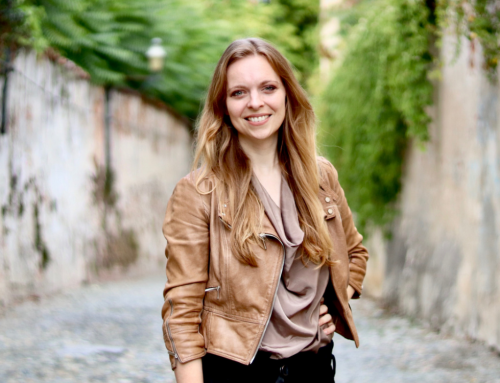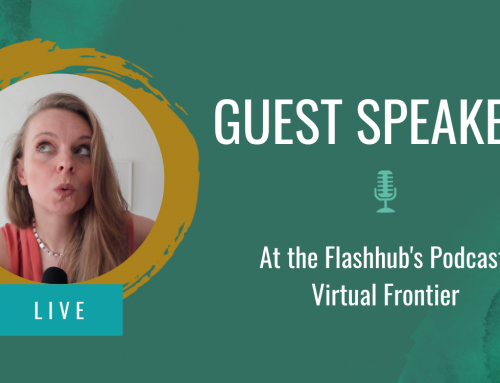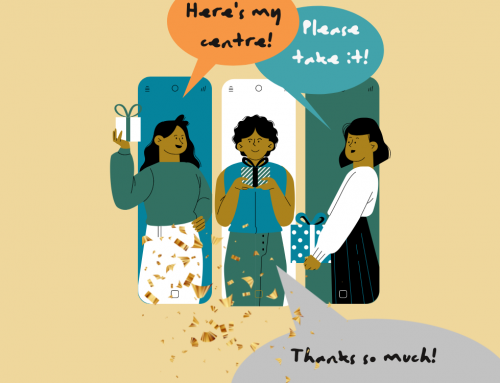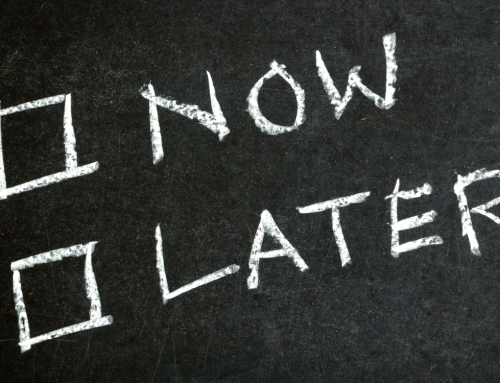Let’s dive into this!
Below you’ll find a step by step breakdown of this webinar.
You can follow along by watching, too.
For now: Get pen and paper! And get ready!

You are likely 4-6 yrs into your occupation, but your learning curve flattens. You can be an employee, but also
If you are employed you are… not exactly inspired by your colleagues (although they are potentially friendly people), and especially uninspired by the leadership of your organisation. You just cannot picture yourself being part of that group.
At the same time YOU KNOW YOU CAN DO MORE. Some tiny (or big) voice keeps coming back saying “I want to live my passions, talents and values – and put that into something bigger, something that inspires myself and others.” You are drawn to this idea. You are intrigued by this.
Do you have to know HOW you will accomplish that? Not exactly. It’s ok to have only a vague idea. No worries about that. (But you have to want it! If you don’t want it no way we can convince you!)
You not just and only about “optimizing your career”. You wanna have impact. AND you love the idea of also having fun on that journey, of taking that journey not just as hard work, but as an act of self-discovery (truth be said: If you just and only focus on the work, you’ll burn out and won’t get far anways).
So: You are looking for peers. People who challenge, support, coach and inspire you. Awesome people who will facilitate that journey of yours, cos you are wise enough to know that you won’t manage all by yourself.
So let’s get started with our 6 amazing questions:
Q1

And if you don’t know WHY you are doing this, you might just run out of courage half way down the road.
Those with the strongest WHY get furthest! What’s yours?
So: On a scale from 0 to 10,
how satisfied are you with the following areas?
(0 = completely NOT satisfied, 10 = absolutely amazing!)
1) The degree to which you can live your passions/talents at work
Are you in a position where you can follow what you love and what you are good at? Are you happy with the degree to which you can pursue these things at work?
2) The degree to which you do something that puts your values into practice/is purposeful
Is what you are doing “ethical” according to your standards? Are you surrounded by a culture/business practices that you would feel good talking about to your parents?
Does the work you do make sense? You do not have to “save the oceans” in order to do something that makes sense. Also building a good product or developing the best marketing strategy can give you that sense of contribution.
3) The speed at which you grow
Are you happy with the opportunities for growth your work offers? Are you learning? Developing? (You do not always have to be on a sprint – sometimes “less crazy phases” are of course ok, but probably you do wanna have SOME opportunities for learning).
4) Your peers
Your colleagues, the leadership level of your organisation, your suppliers, your customers – whoever you meet at work. Do they challenge you? Support you? Are they generally interesting? Worth hanging out with? Again: not everyone needs to be Einstein, but remember how you become who you surround yourself with. And if you are constantly surrounded by boring people or greedy people – think again!
5) The money you are making/ the future outlook your work offers
How satisfied are you with your income? And the way your current work positions you for a – let’s say – even more triumphant future career and impact path?
Just pick your numbers for each area. Evaluate!
Q2

The Section of Direction in the Ocean of Emotion.
Q3

So, let’s think about it!
How would you KNOW that you’ve reached it?
Imagine a situation where you have that? What do you see? Hear? What is happening?
Do yourself a favour and actually imagine a CLEAR situation. Do not just say: “Oh, I will be so much happier!”
Instead: If “Growth” is your SDOE, and you would love to get promoted, imagine how you are getting that promotion. If “Purpose” is your SDOE and you feel like you wanna switch to the Organisational Development Department in your organisation to help changing the internal culture, imagine how you sit down at your new desk the first time. If “Money” is your SDOE, imagine how your desired amount is popping up at your bank account.
Be concise! The more concise we are with our wishes and hopes the more targeted our responses/actions towards them can be.
Write down a couple of things. Or draw that situation, if you like. Feel into it. Does it feel good? Do you feel resistance? Just notice the things coming up.
Q4

Don’t be scared!
1) Do you have to move up?
Do you need to get a promotion? Ask for more money? Better task and responsibilities? Work with different people within your organisation?
2) Do you have to move out?
If there is no (zero!) way to pursue your dream within your organisation, you might have to go the though rout and switch departments or quit entirely. Be careful to not too easily fall into “the grass is always greener on the other side”-thinking. I personally am pretty careful to advise people to quit their jobs. Especially if they have already built expertise and networks with their current work. Before you quit: DO answer the (seemingly obvious but still often unanswered) questions “If I leave, which alternative would be better and why/how would that be better?” Very very very few people can deal with the pressure of just leaving their job without any other good alternative (I would struggle like hell).
Having said that: Sometimes quitting IS a good idea. And it won’t be the end of the world if it takes some time to build up something new.
3) Do you have to adapt your style?
Sometimes we know what we want AND it is even within reach of our current position. But: we just have to act in a different way. Maybe we have to start getting more sales contacts in, maybe we have to communicate more as a team leader, maybe we have to finally walk up to our boss and tell her these 3 ideas you have on how to make your purchasing department more efficient – maybe the context isn’t the problem, but YOU 😉
So… pick your fav!
And come up with 1-3 actions that you ACTUALLY need to get done to raise your number from Q1 to the desired state of Q3.
Go!
Q5

If it was easy, you probably would have done it already.
Duuuh.
Well, there will likely be reasons why you haven’t done yet what you should have done (or would have loved to do).
In the past years of coaching people have given us all sorts of stories and (this is meant in the kindest and most positive way) excuses as to why it was not possible to do what they really wanted to do.
I understand and appreciate and cherish every single excuse. They are our brain’s highest efforts to make our status quo more bearable.
Usually – even if we think we are just lazy or “silly that we are so confused” – based on fear. Let’s respect that.
Having said that: We can choose to sit with our excuses (fears) or we can choose to do something about it.
You can guess easily which of the two options we recommend.
1) The fear of “not knowing what else”
Most people who we coach are held back because they just don’t know what the heck these mysterious passions, talents and values are they are supposed to follow. Making a simple list is possible, but… doesn’t really catch them.
2) The fear of financial uncertainty
Many people find their passions in starting their own business or working as a freelancer. Do we have to explain more than that?
3) The fear of “Others wont take me seriously”
“Those who have visions shall go to the doctor.” – is a German saying. Is it funny? Yes. Does it describe a widely spread attitude about how the act “following your passion” is seen by many? Yes.
4) The fear that “that is so narcisstic“
A tough one. From coaching so many young mums (and fathers) we know: “I have to care for a child/family member is – I don’t have time to follow my passion” is a powerful belief.
So many people feel GUILTY to follow their passions. And will make all sorts of excuses around why following something else is better.
5) Confusion? (aka “the fear of … I don‘t even know what I am scared of“)
Similar to point 1). At The Arc we believe though that “general confusion”, too, can be a defence mechanism. Something that you do to protect yourself from something else which your brain/ subconsciousness believes to be even worse. Such as: “I am confused, because I am really scared of the things I’d have to do if I honestly thought about the career that I really want.”
If YOU are in this box: Ask yourself “What feelings is this confusion shielding me from? What am I avoiding? If I just sat down and listened to my intuition: What would surface?”
Your fear is just as valid as any other of the abovementioned fears 😉
Fear asks you the question: What do I want to pay attention to?
Apart from it being pretty hard (almost impossible?) to make YOU overcome you fear in a blog article, it’d also be unethical.
In other words:
You will not hear us say: “Just overcome all your fears and you will live your dream.” Because overcoming your fears is not the same as living your dream.
Overcoming your fears will remove the obstacles between you and your dream. LIVING that dream also requires a smart decisions around how you PRACTICALLY structure your life, your activities, other things like your health, family, income, friends etc. around the pursuit of your passions/talents/values.
WARNING: You especially won’t hear us say “Just overcome your fears, found a startup and live your dream!” Overcoming your fears does not yet make you a good entrepreneur!
You may be surprised to hear that currently we coach MORE entrepreneurs than corporate employees. Yes, entrepreneurs tend to be more fulfilled as they have more authority over controlling their time. BUT they are also MORE burnt out and worry more about finances.
There are more reasons. But it’s probably already clear by now 😉
Q6

There is no doubt that some people are better off doing this by themselves.
That’t not the majority.
Here’s why:
If your fears are real, it’s gonna be pretty hard (to impossible?) to overcome them with your current way of thinking – which tends to be exactly that sort of thinking that got you where you are.
So getting support is usually a good idea.
Here’s how support can look like:
- A friend? Your partner? Any other ally?
- A mentor i.e. someone who already did what you did?
- The Arc – the fast track?
Whatever is best for you! Take your pick 😉
So now WHAT?
Are you curious about how to get started?
Get in touch here to make an entry analysis on how we can best accelerate your impact, your passion and your growth:Get your support system in place. Check out these other inspiring stories from this blog.
See you online or offline.
That’s it!
Like more of this stuff? Get real and join us for a crazy ride of a life time:







